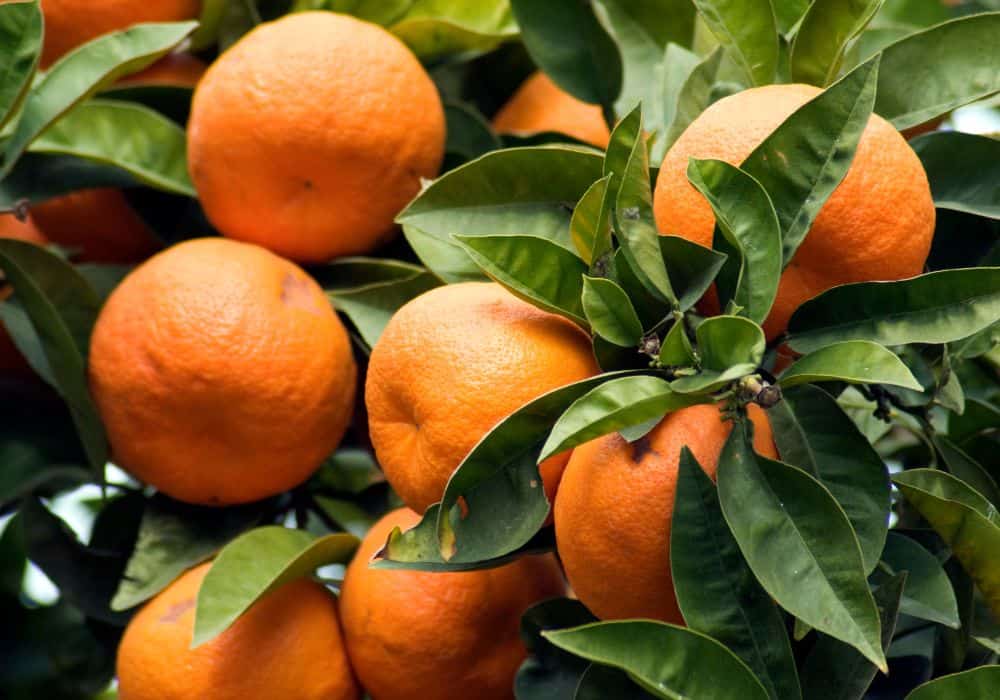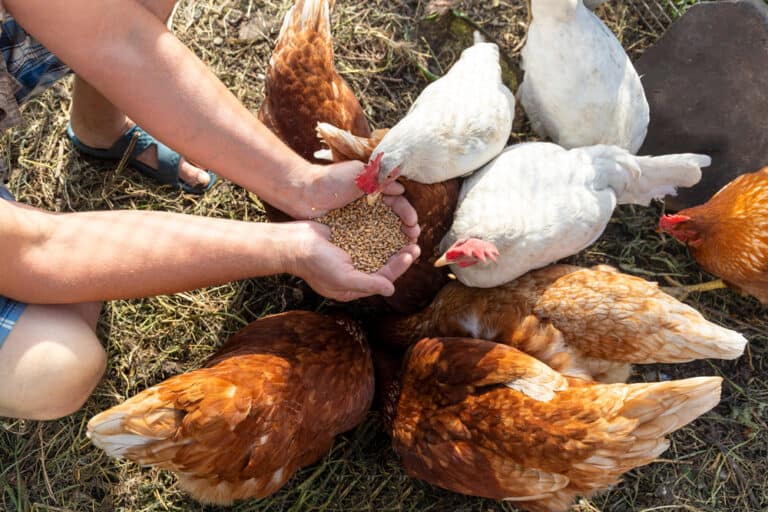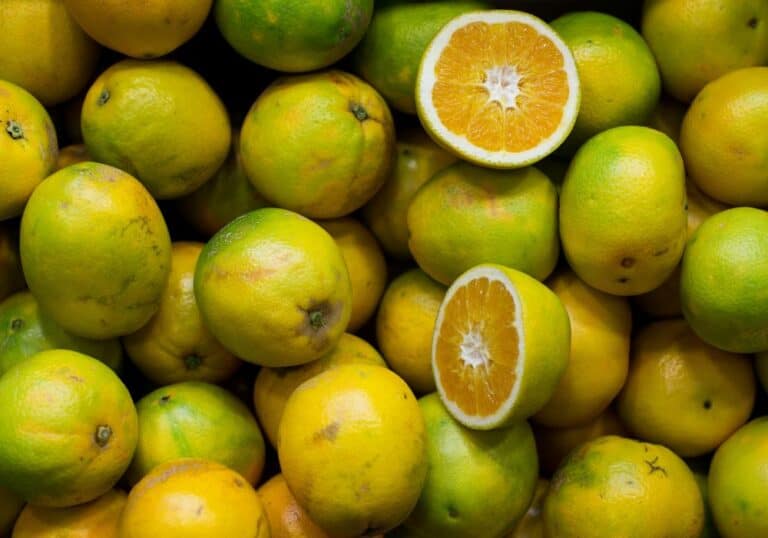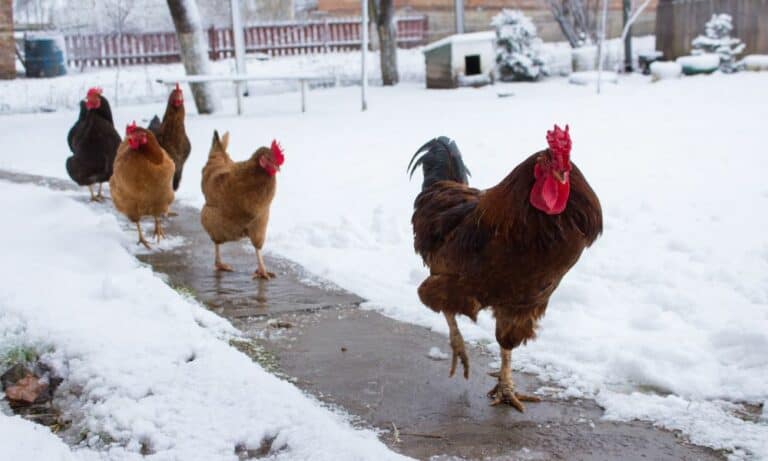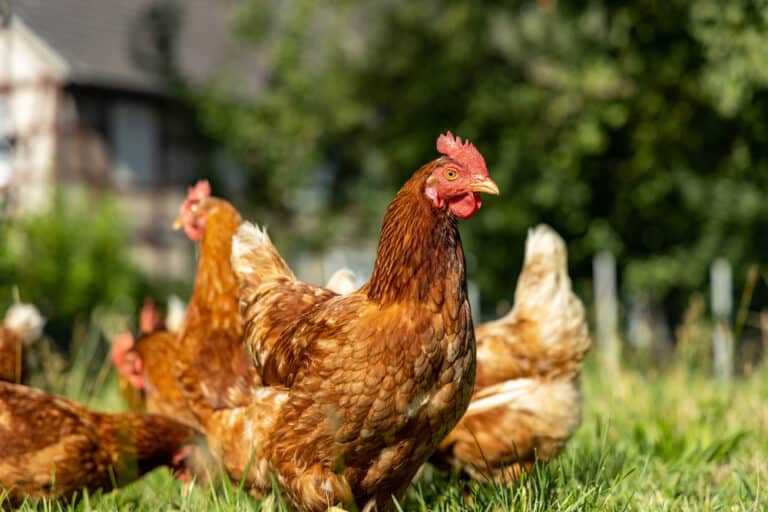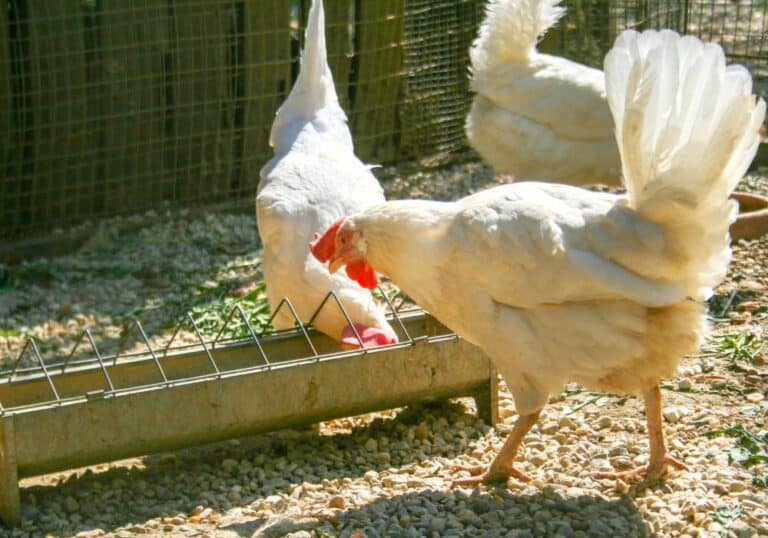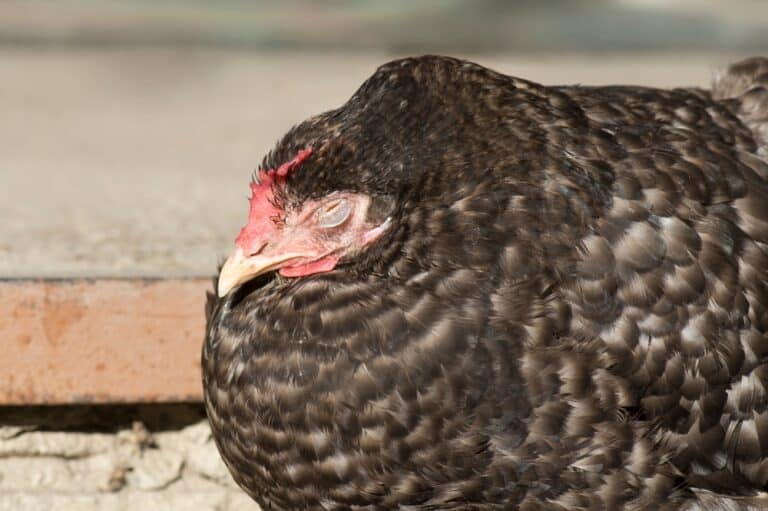When it comes to food items chickens can eat, a common question is: “Can chickens eat oranges?” Chickens can eat oranges, despite some sources or websites claiming otherwise.
This confusion arises because chickens often shy away from eating citrus fruit in general. However, chickens’ diets can be very versatile, known as omnivores. In the wild, chickens peck anything, from seeds, flowers, and leaves to various insects and worms.
So let’s check some general information about oranges, whether chickens can eat orange peels, and the best diet for chickens!
General Information About Oranges
Oranges are fruits of numerous citrus species belonging to the family Rutaceae. When we say orange, we usually think about the sweet oranges or Citrus x sinensis, a hybrid between pomelo and mandarin.
This delicious citrus fruit comes from a region stretching across Southern China, Northeast India, and Myanmar. According to a study conducted in 1987, orange trees are one of the most cultivated fruit trees in the world.
They are very popular in the US, producing around 4 million tons of oranges annually. In addition to their refreshing taste, they offer numerous health benefits and are known to be packed with vitamin C. Hence they are used to prevent or combat common colds.
Although most people like to eat oranges on their own or drink orange juice, the possibilities with oranges are endless when it comes to making various dishes. They are often used to make cakes, muffins, candy, concentrates, salads, relishes, and many more.
Can Chickens Eat Orange Leaves?
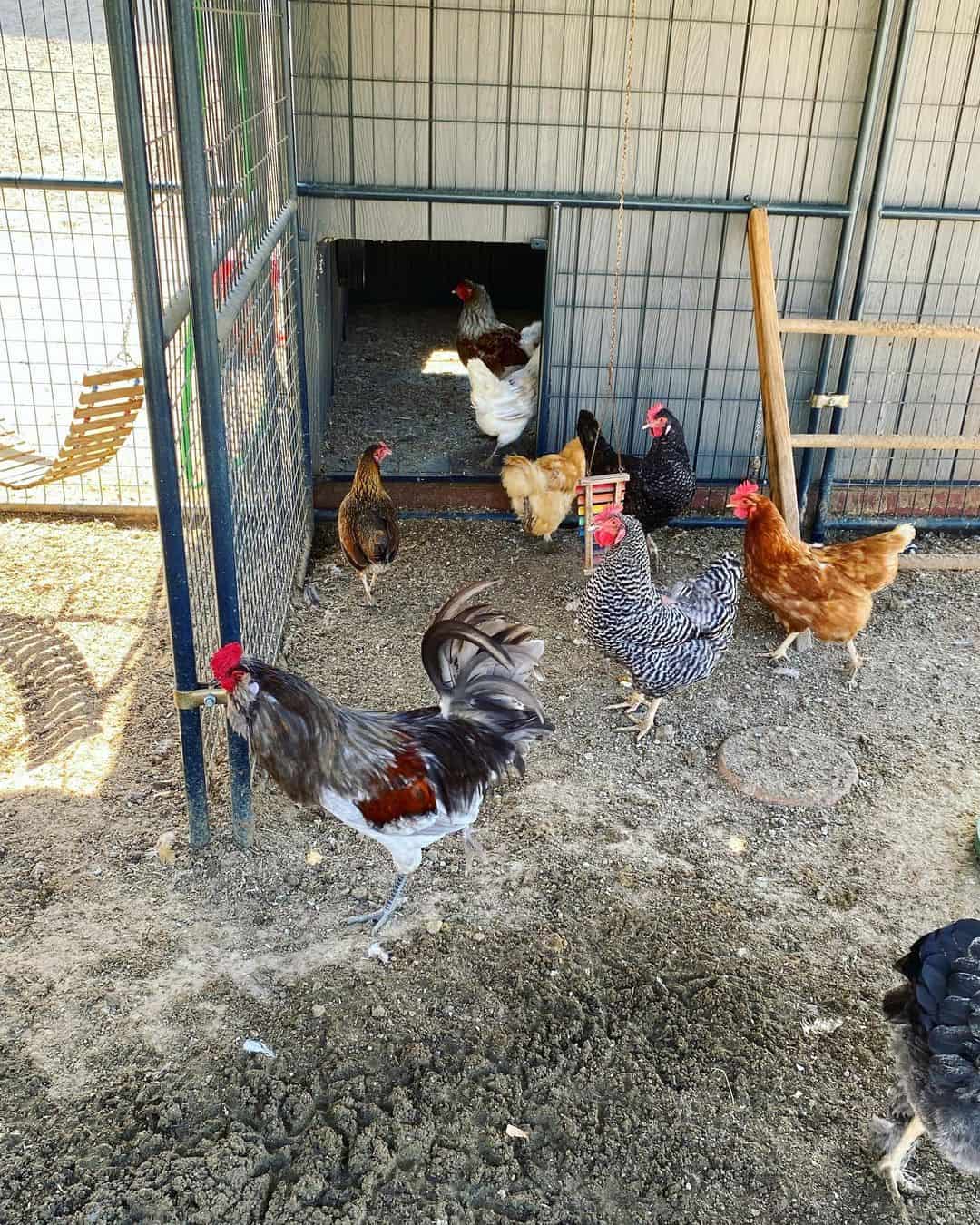
The answer is yes! Chicken can eat orange leaves, and they are packed with various nutrients, minerals, ad vitamins, just like the fruit, although the amounts of these nutrients are different in leaves and fruit.
Orange leaves are high in vitamin C, fiber, and potassium and are perfectly safe for backyard chickens. However, avoid giving them orange leaves treated with pesticides as they harm chicken health. If you can try to acquire organic orange leaves, you can buy dried orange leaves and add them to the chicken feed.
Considering that chickens can have food preferences, sometimes it happens that chickens are more thrilled with orange leaves rather than the actual fruit.
Many believed this is connected with the taste of citric acid, which may be repulsing to chickens. Either way, they are not picky and will gladly munch on other fruits and vegetables, such as cucumbers, celery, lettuce, and carrots, among many others.
Can Chickens Eat Orange Peels?
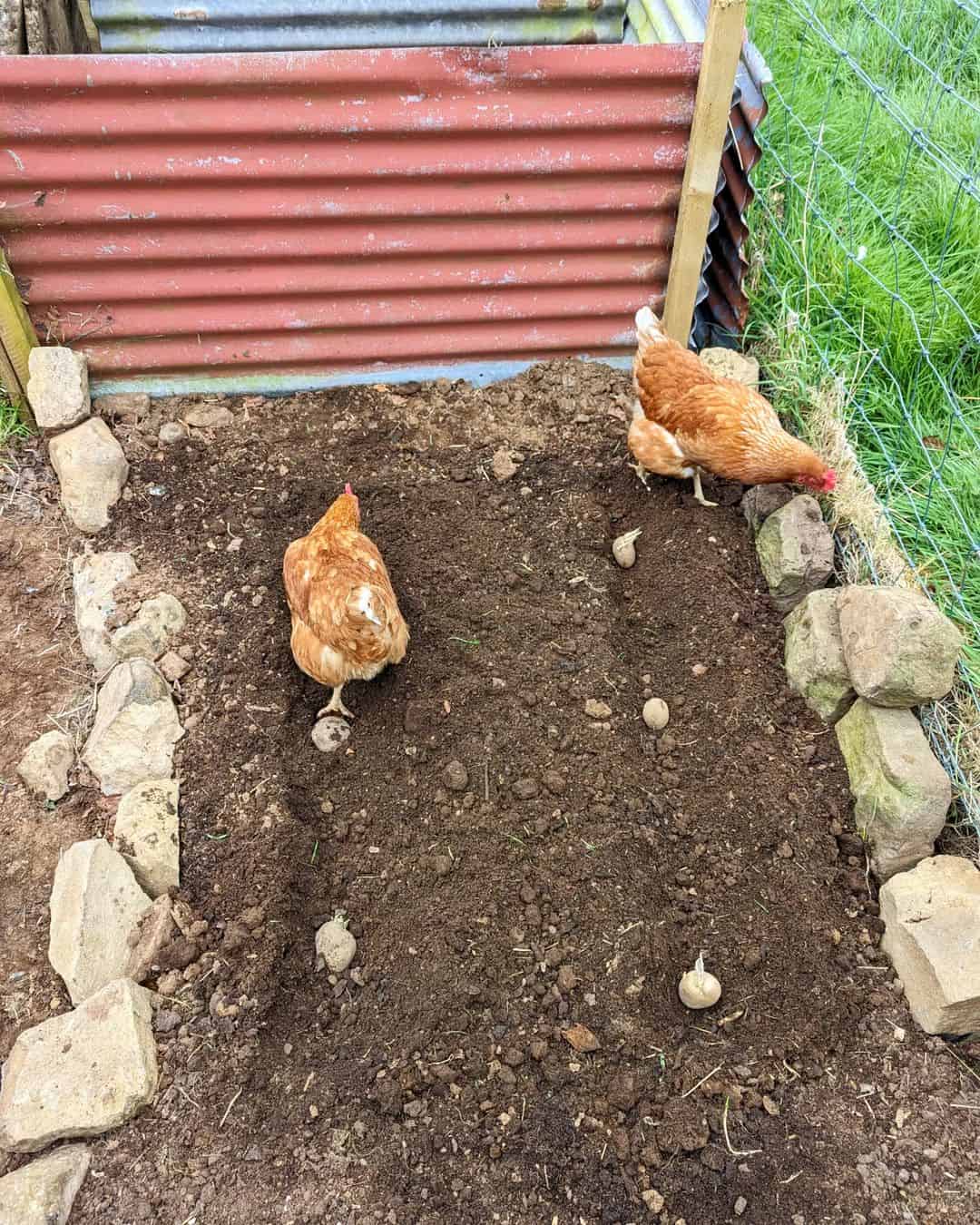
Maybe you have heard or read somewhere that orange peels are bad for chickens. No, that is not true! Orange peels are a safe and healthy treat, and they will not mind pecking on small copped pieces of orange peel.
Orange peels are believed to be good for digestion while offering numerous vitamins, nutrients, and minerals, such as calcium, magnesium, phosphorus, and manganese.
Oranges are known for their anti-bacterial and anti-fungal properties, which will help chickens fight off bacteria-caused infections.
How to incorporate Orange Peels Into the Chicken Diet?
When eating an orange or making a dish save the peels. You can chop them into small pieces and scatter them across the chicken coop and their run space, or simply add the little bits to their chicken feed.
Always wash the peels before giving them to chickens as a precaution. On the other hand, you can dry the peels, grind them into a powder, and combine it with their regular food. When giving oranges to your chickens, moderation is the most important rule.
Can Chickens Eat Orange Pulp?
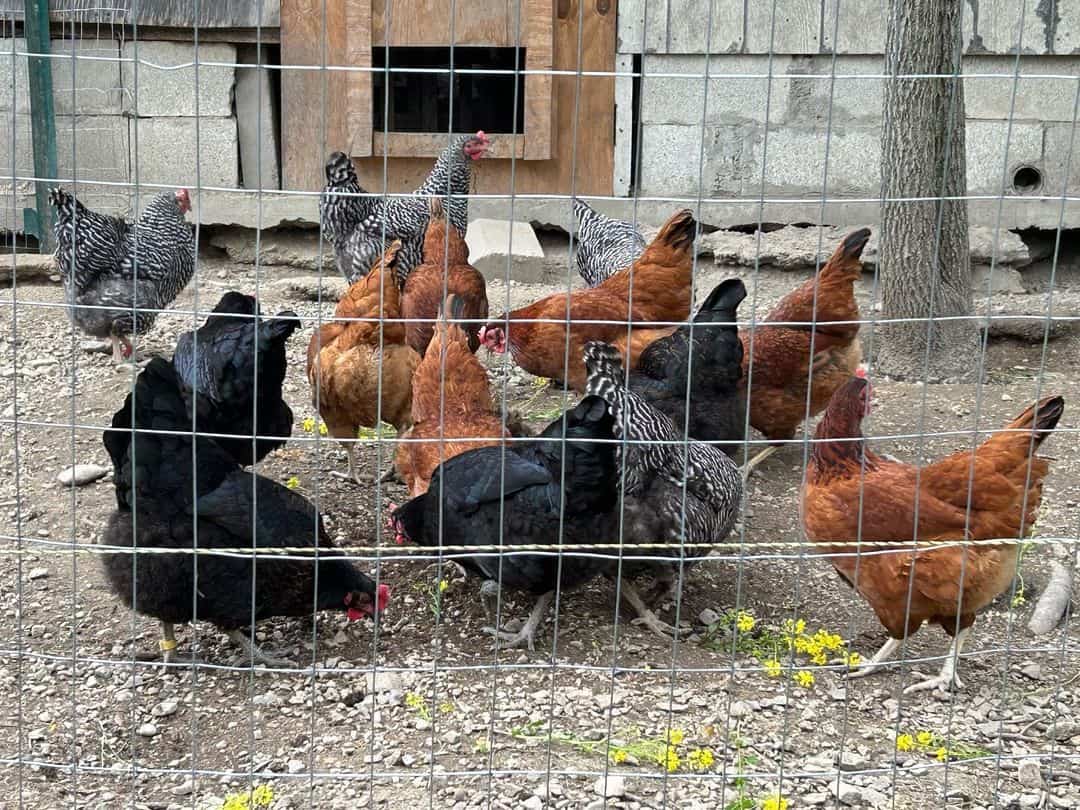
Yes! Chickens can eat orange pulp, but they usually refuse to eat it. The orange pulp contains numerous healthy nutrients, but the issue is that most chickens will try to peck it and then just leave it.
According to various studies, chicken pulps are said to lower the number of harmful bacteria in their gut.
Chickens can also eat limes and lemons, but as noted, it would not be surprising if they are not very fond of them. The most important takeaway for a chicken diet is to let them choose what they like and not force any food on them.
Do Chickens Like To Eat Oranges?
Well, in most cases, the answer is no! As someone who has raised chickens, you notice that they tend to prefer certain food over others, and oranges are not one of those preferred choices.
When you give the peels or pieces of orange to chickens, they will naturally try to peck it, but they often give up on them after trying the taste.
But do not despair if they do not want to eat them. Ultimately, they are not essential to their diet, and the chicken’s health will not suffer consequences.
You can provide them with important nutrients by adding other foods to their diets, such as blueberries, strawberries, bananas, cabbage, and apples, which are their favorite.
What are the Nutritional Benefits of Oranges?
As noted, oranges are super healthy and offer a number of health benefits. Oranges are high in vitamin C (70 milligrams in 100 grams), which is responsible for boosting immunity.
Numerous studies and reviews have shown that oranges help our cells to fight infections, and the same goes for chickens. That is not the only vitamin in oranges; they also have folate, or vitamin B9, responsible for cell growth.
Oranges also reduce blood pressure and improve digestive health, which is vital for the qualitative absorption of nutrients. Generally, 100 grams of oranges contain around 3 to 4 grams of fiber, facilitating digestive system processes.
Interestingly, the same amount of oranges also contains 1 gram of protein. There are no fats or sodium in oranges, which is good news because chickens should not eat food high in fat or salt. The total amount of calories in 100 grams is only 60 calories.
They also contain 12 grams of sugar, which is low for our daily needs but high for chickens. Oranges contain 14 micrograms of vitamin A, which is known for preserving and improving eye health, immune system, reproduction, and development.
These citrus fruits also contain calcium, around 6%, a very important vitamin for developing bones and allowing bodily movement by keeping tissue rigid and flexible. Regarding the mineral content, there are 237 milligrams of potassium in 100 grams of oranges.
Ultimately, oranges also contain 15.4 grams of carbs.
Which Foods Are Bad For Chicken?
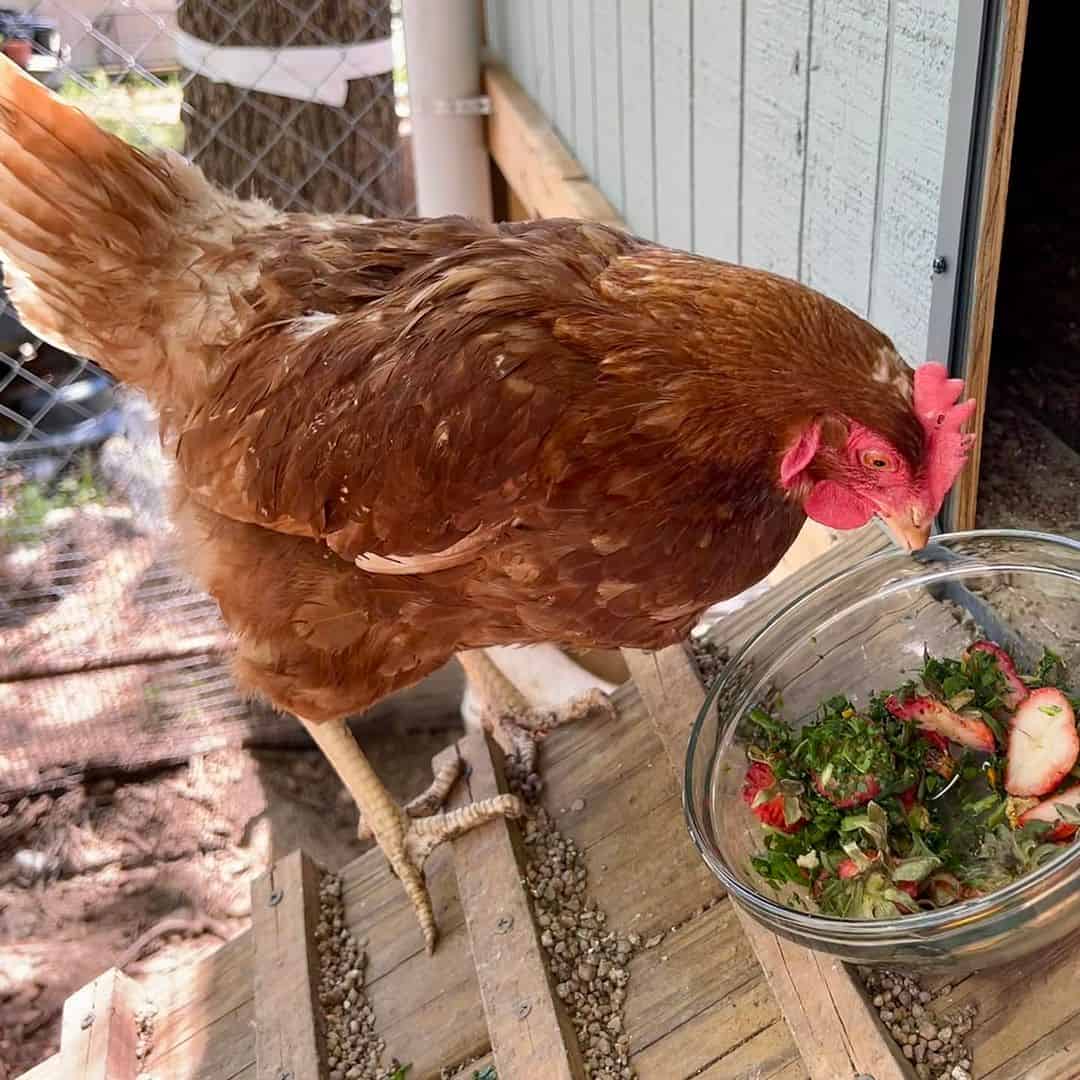
Although chickens are omnivores and will most likely try to eat anything, certain food can cause serious health issues. Some foods are caffeine, alcohol, uncooked beans and rice, green tomatoes, avocado, chocolate, and potato peels.
Important note: Do not give your chickens food high in solanine, a poisonous compound found in the green parts of potatoes and potato peel, and raw eggplant and tomatoes.
The same goes for moldy, rotten, or stale food because it can cause various digestive problems. Interestingly, the list of food that you should give to chickens is pretty long and also includes apple seeds, onion, garlic, pits of fruit,
The general rule is to avoid giving them foods high in sugar, salt, and fats. As noted, moderation is the key with any food, and too much of anything will cause them digestive problems and might affect their egg production and meat quality.
If you notice that your hens are behaving differently, the reason may be that they have eaten.
FAQ
1. What Are Chicken’s Favorite Snacks?
Let’s first start with their diet! The chicken diet should predominantly consist of chicken feed containing valuable nutrients for their development and growth. So, around 80 or 90% of their diet should be chicken feed, and you can incorporate healthy snacks.
Chickens love veggies and fruits like kale, asparagus, melon, peaches, cauliflower, plums, pears, strawberries, cherries, melons, and banana peels.
2. Can I give Chickens Peanut Butter?
Yes! You can give chicken peanut butter, but be very careful with the amount. Peanut butter or peanuts are very high in fats and carbs. You can be creative and make little treats with apples dipped in peanut butter.
Interestingly, chickens also like oatmeal, and during the winter days, it is a very healthy meal that provides them with vitamins, proteins, and antioxidants.
Conclusion
The key takeaway from this article is that you can eat oranges, leaves, pulp, and peels. We have covered some basic information about oranges and discussed whether chickens could eat pulp and peels, which food is bad for chickens, and their favorite snacks!
If you keep chickens, please share your experience regarding their feeding with us! If you have any questions or comments, do not hesitate to ask or comment!

